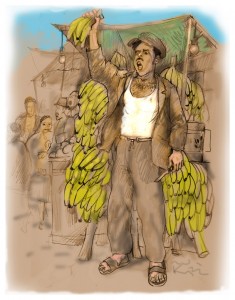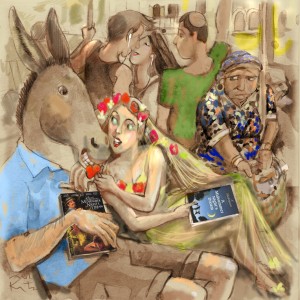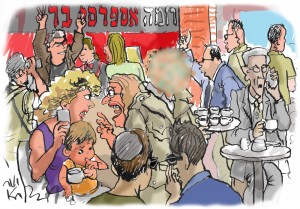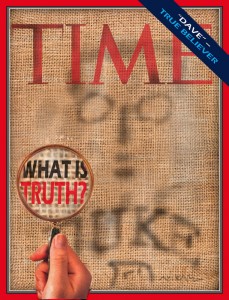Haim Watzman
Hooligan oil? Did you say hooligan oil? I’m so sorry, I was deep into this letter from my sister back east, I didn’t even hear you come into the store. It’s so quiet this time of day, in the early afternoon, sometimes I just close up and go for a walk.

illustrations by Avi Katz
Alaska’s spring is so beautiful this year, the lupines are blooming early and it’s simply glorious. I always tell my girls, Sarah, Minnie, I say, there is so much to look at in this world, I mean irises the color of the purple of Sidon. Turn your gaze on them, not on Harry and Joe, the ships’ boys on the passenger steamer from Dyea. You might notice that the irises, unlike Harry and Joe, don’t have pimples. Max, Simon, I say, don’t walk with your eyes on the ground, look around you, see what an Eden God has given you here in Skagway.
Now let me see, hooligan oil, not many people ask for that any more, but you know that they used to call it “liquid gold,” before they discovered the solid stuff it was made the natives’ fortune, such as they had. I know some women who say it prevents wrinkles, but others can’t stand the smell. Once Max, he is only twelve but a true rascal, got hold of a bunch of those fish, hung them from the rafters in their bedroom, and lit the tails. Nearly burned the house down! He said that he wanted to see if what the old-timers said was true, that you could use the fish as candles. You want to be scientists, I’ll send you to Harvard, I say. No experiments at home. But better they should study medicine. It’s one profession where we people can make our mark, where we get some respect.
No need to say it in such a low voice. Nothing to be ashamed of. Yes, Jews.















